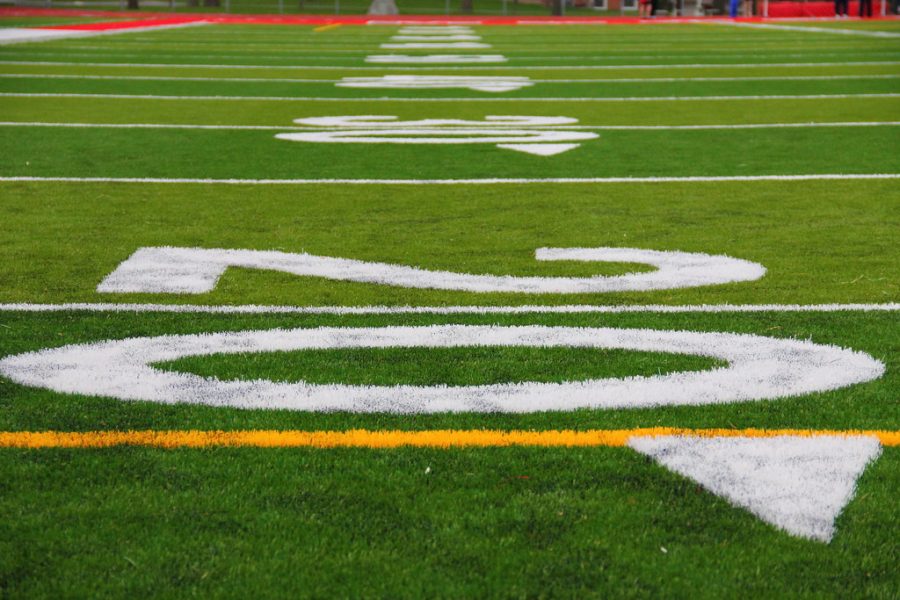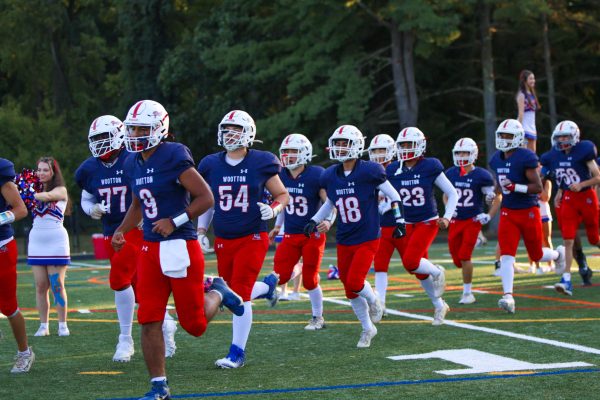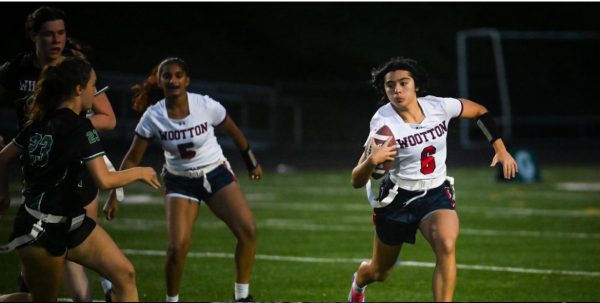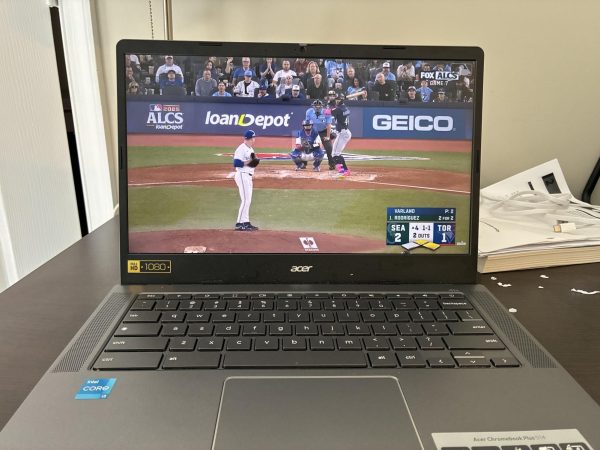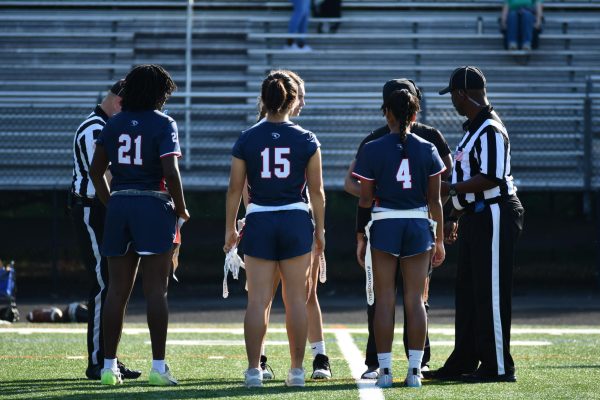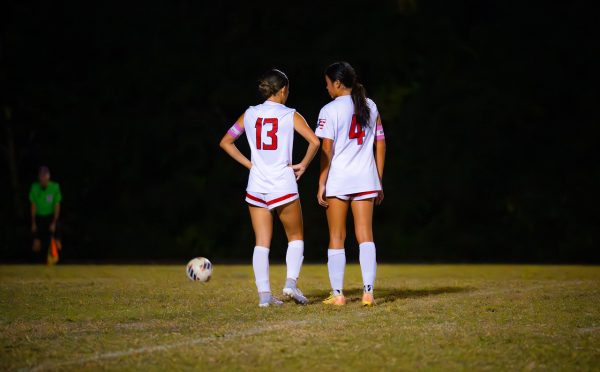Virtual sports seasons in review
Photo used with permission from Google Commons
Football fields remain empty as players connect on team Zoom meetings.
Montgomery County Public Schools was forced to cancel in person sports and replace them with three virtual sports seasons that included Zoom meetings and team bonding activities over the course of the first semester.
MCPS gave coaches a broad expectation for the season and left them with the freedom to decide how they want to manage their teams and hold their players accountable. This year, anyone who wanted to participate could and there were no cuts, which encouraged more students to participate in the pressureless environment. Varsity baseball coach JD Marchand said, “We tried our best to create variety between our meetings and even got an NFL conditioning coach and a former MLB player to come speak to the group.”
Students who signed up to participate had little to no expectation of what to expect and this left it up to the coaches and team captains to figure out how to make the most of this difficult situation. Students were excited about being able to see and converse with their teammates again and it was a good opportunity for freshmen to be able to branch out and meet new people. Junior Jay Bhanot said, “I anticipated doing most conditioning from home and feeling down, but having Zoom calls with the team was amazing and they exceeded my expectations.”
When the sign-ups were released to be on the virtual team, students had to value whether adding an extra commitment would be a worthwhile use of their time. The change of routine and added social interaction was an appeal to students who may not have tried out for the team under normal circumstances. Junior Sophie Friedman said, “The virtual season was a good use of my time and it was something I had to look forward to. I would get up and spend time with my friends over Zoom.”
Given that this was the first year virtual seasons, coaches came across a lot of challenges along the way, whether it was student engagement, technical difficulties, or making good use of their Zoom time. One of the issues that coaches had to address was to have a Zoom after students have just had a full day of online classes. Marchand said, “We had trouble having a Zoom after I taught a full day and students had classes so we tried to minimize the screen time during our virtual season so this put more accountability on the athletes themselves to perform and accomplish their goals.”
Hopefully, the bonds and relationships that were formed between students and coaches will have a positive carry over to the next in-person season. The virtual season format brought teams closer together, building team chemistry that can have a positive impact on the teams’ performance. Bhanot said, “The virtual season brought the large cross country team closer together, making me more excited for our next season and more motivated to train harder for the in person season.”
Your donation will support the student journalists of Thomas S. Wootton High School. Your contribution will allow us to purchase equipment and cover our annual website hosting costs.
Brett Halpern is a 2022 graduate.


